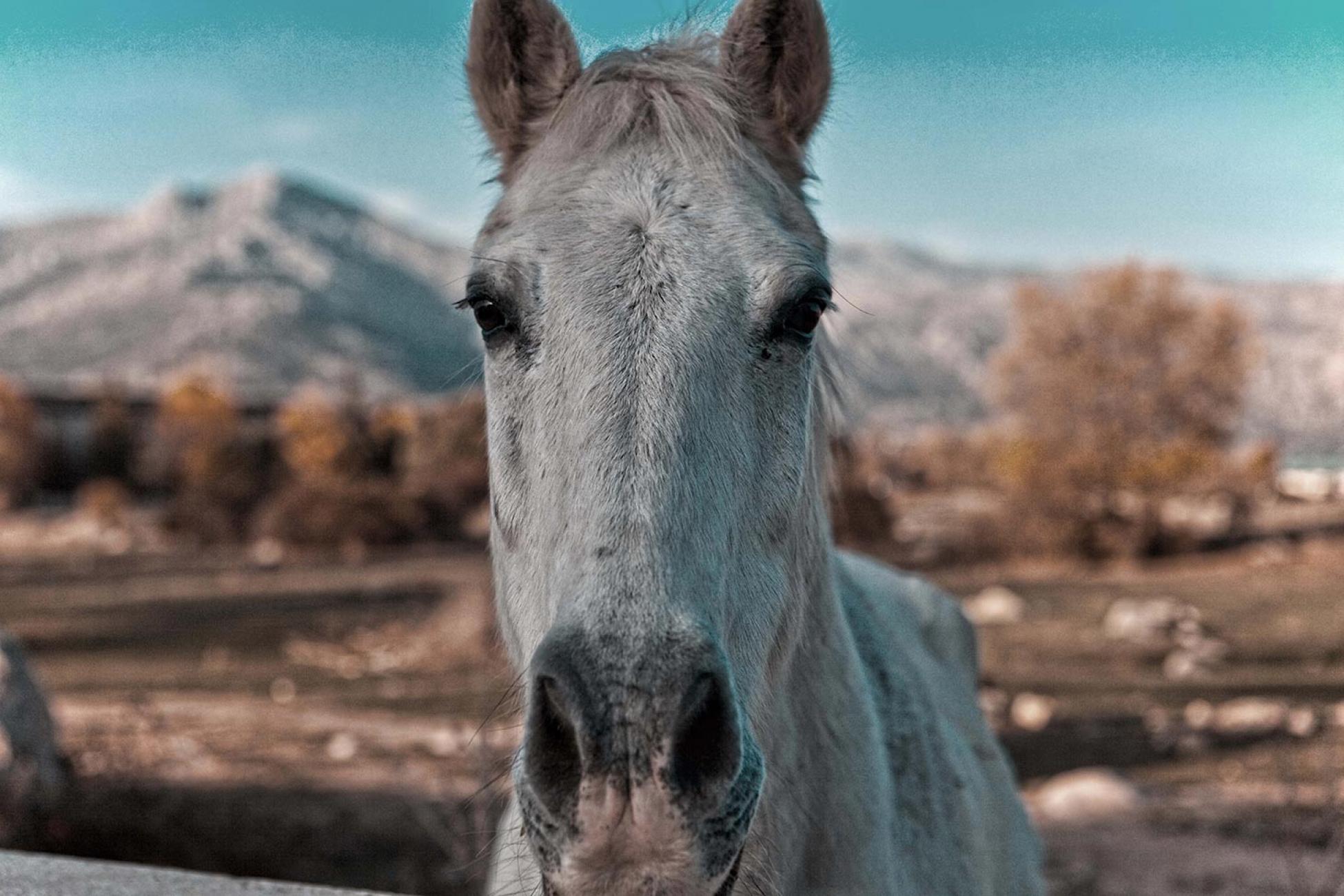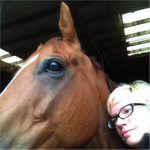I woke to the restless stirring of my equine neighbours pacing their stalls and occasionally kicking our shared wall. Horses, eager for breakfast, sound a more charming wake-up call than the standard alarm clock wherever you are. My days that winter and spring, like so many before, were steeped in all things horse—sweat, hay, fresh air, manure—but this time, with an Austrian twist.
Nestled in a 200-year-old farmhouse in a small village outside of Vienna, I spent five months working as a groom and rider for a private eventing barn, a facility dedicated to dressage, jumping and cross-country. In addition to working with horses, this meant spending evenings at the local heuriger, hopping aboard public transit to spend days off in Vienna, and road-tripping in a tiny Fiat Panda through Slovakia and Hungary. Suddenly, the expensive and “impractical” hobby of my youth had become my ticket to see the world.
If you’re experienced in horse care or riding, there are many international opportunities to work in a variety of settings, from small private farms to large training facilities.
Why work with horses overseas?
Working with horses involves long hours and hard physical work. You will likely wake with the sun and fall into bed exhausted every night, and you may only get one day off per week. While many of these jobs will provide housing, they may not pay well. Living and working in a rural location can present a challenge when it comes to making short excursions on your days off and can leave you feeling isolated throughout your stay. So why would you ever want to pursue such a job?
For those of us who love horses and travel—and who struggle to choose between them—working abroad with horses is a unique opportunity to blend passions, offering fresh perspectives on life abroad and on the horse world.
“I couldn't decide between travelling and being a working student, so this opportunity provided the compromise,” recalls Mary, a 28-year-old American student working in the United Kingdom. For Mary, who wanted a professional dressage program where she could work with horses at various levels of competition, going overseas also provided her with training experiences that she couldn’t access at home. “The international barns seemed more willing to take on working students and to have larger working student programs,” she adds.
How and what you learn may also differ from what you would encounter at home. You may get to ride off the beaten path (literally), often on an unfamiliar breed of horse, maybe in a unique style, all while learning to incorporate different ways of training your horse. You may even learn a new language. Rural life can be isolating at times, but it can also reveal a side of a country’s culture that many travellers and urban expats miss.
And while there are challenges, it’s the kind of lifestyle that’s addictive. Polly, a groom and breeding manager, only intended to spend a year on a working holiday in Australia. Five years later she now calls it home. “I went to go see a friend who lives in Australia. She worked on a thoroughbred racehorse breeding farm; I just never left.”
What types of jobs are available?
• Groom: Grooms are responsible for morning and evening feedings, cleaning stalls, putting horses in the pasture and as the name implies, grooming. In some cases, grooms may also ride and travel to competitions.
• Working student: Working students trade work for housing, training and probably a small stipend. Like grooms, they are responsible for horse care, but they also get consistent and structured riding time and lessons.
• Trekking guide: Like grooms and working students, trekking guides are responsible for horse care, but they also learn trails and lead group rides (possibly giving historical and geographical information), and keep horses fit and well-trained for paying riders. For Claire, who had just graduated from an equine science program, guiding trail rides in Italy provided the perfect way to combine her love of travel and riding. “I had studied abroad before and loved it, so I thought, what a great way to see more of the world and ride,” she says.
What should I ask potential employers?
There are many types of equestrian jobs and facilities and, to some extent, the questions you ask will be unique to each situation. But, in addition to chatting with former employees whenever possible, here are some considerations to discuss with potential employers:
• Living arrangements: Are they on the facility? Will they be individual or shared? What is included?
• Work arrangements: Will I be part of a team or working mostly alone? What is the daily schedule like?
• Contract details: What is the rate of pay? What are the visa requirements? Will you help me secure a working visa?
• Opportunities for travel: Will my schedule be flexible enough to accommodate some travel? If the location is isolated, will I have access to a town or other destinations? Is there a public bus? If not, what are the transportation options?
How can I find a job working with horses abroad?
In addition to checking university and agricultural school jobs boards, visit Yard & Groom or Equistaff.com, both of which post job opportunities overseas.
Add this article to your reading list



